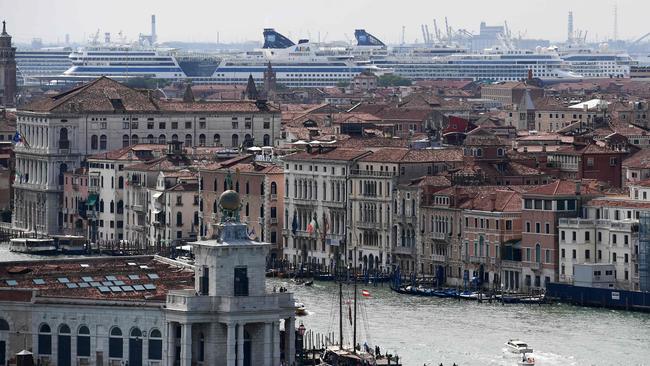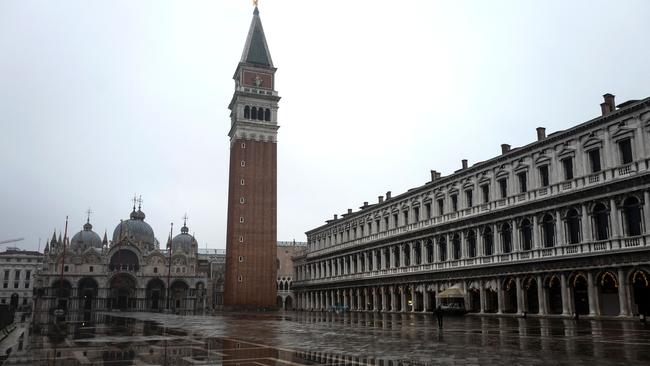Venetians on board for future without cruise ship riches
Venetians have complained for years that waves caused by massive ships are damaging the foundations of the city.

For centuries Venice relied on maritime visitors to build a lucrative trading empire and then welcomed crowds of tourists by land, sea and air.
But now the Italian government has backed a ban on large passenger and cargo ships approaching the city because of the perceived risks from a disastrous accident or environmental catastrophe.
Venetians have complained for years that waves caused by massive ships are damaging the foundations of the city, which suffers from subsidence and regularly floods. They have also argued that the biggest cruise liners, complete with accommodation and dining facilities on board, can undermine the city’s tourist economy and are little more than eyesores.
The Italian cabinet agreed to proscribe them last week, and said that when the city reopened after the pandemic, the largest vessels should be routed away from historic sites such as the Giudecca canal and St Mark’s Square.
A decree approved on Wednesday called for public consultations on building a terminal outside the lagoon, where passenger vessels of more than 40,000 tonnes and container ships could berth without passing in front of St Mark’s Square.
In the interim, large boats must dock at the industrial Marghera Port, far from the Grand Canal.

Dario Franceschini, the culture minister, hailed “a correct decision, awaited for years” and said it would help to answer a request by the UN’s cultural agency UNESCO, to preserve the city’s heritage.
“Anyone who has visited Venice in recent years has been shocked to see these ships, hundreds of metres long and as tall as apartment buildings, passing through such fragile places,” he said.
Venetians have also feared that a serious maritime accident could do irreparable damage to the city.
Concerns were heightened after the Costa Concordia, a 114,500-tonne liner, sank off the Tuscan island of Giglio in 2012, with the loss of 32 lives.
In 2019 a cruise ship collided with a dock and a tourist boat in Venice as it was approaching a passenger terminal on the Giudecca canal, injuring four people.
Francesco Di Cesare, president of Risposte Turismo, a company that has studied the impact of cruise tourism on the Venetian economy, welcomed the decision but said that proposals for a new port would require careful thought.
“Just think of the number of shuttles that will have to be carried out for the transfers of passengers from the new terminal to the city and vice versa, which will certainly have both economic and environmental effects,” he said.
Passenger ships brought an estimated 1.5 million tourists to Venice in 2019 and contributed €150m to the city’s economy, including the booking of 10,000 hotel rooms, according to the Cruise Lines International Association, a trade body.
The Venice Passenger Terminal maintains about 5000 jobs, with the city’s role as a “home port” for many ships bringing in revenue from crew expenditures and restocking food supplies.
Simone Venturini, Venice’s deputy mayor for economic development and tourism, said the city had its own plan to re-route more large vessels via the cargo port, which employs 20,000 people. Alternative solutions include a proposal for a new offshore marine terminal near the small port of Chioggia, connected to the mainland by a road.
Mr Venturini said he was sceptical about the outcome of the latest consultation: “Anyone who knows the mechanisms of Italian politics realises that a call for ideas means there will not be a port outside the lagoon for 10 years”.
Despite the recent economic shock caused by the pandemic, Venetians do not want to return to the bad old days of over-tourism, he added.
“Paradoxically COVID has shown us an empty city and Venetians have loved it even more,” the deputy mayor said. “In future we don’t want to see visitors eating sandwiches on church steps. We want them to take their time to discover the city and to respect it.”
The Times



To join the conversation, please log in. Don't have an account? Register
Join the conversation, you are commenting as Logout